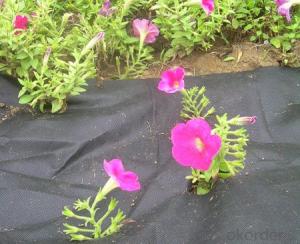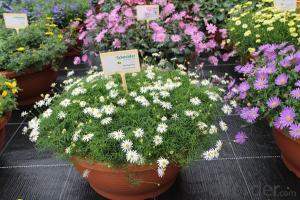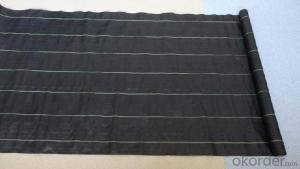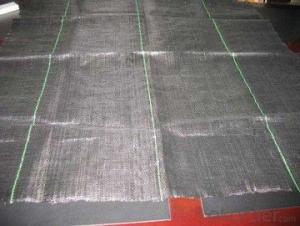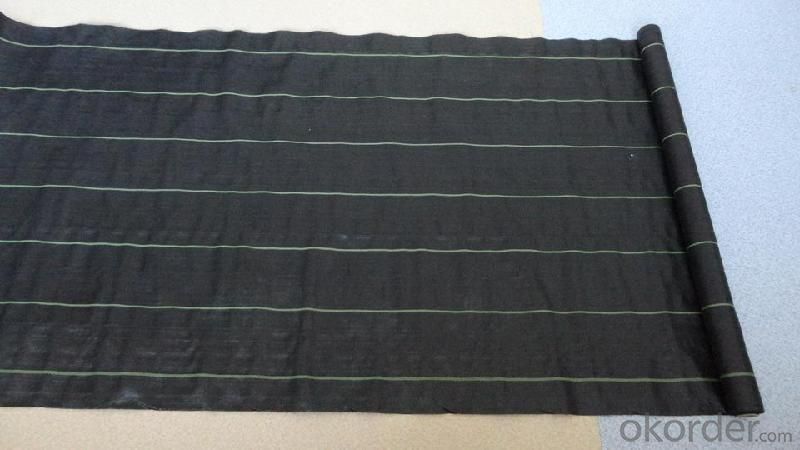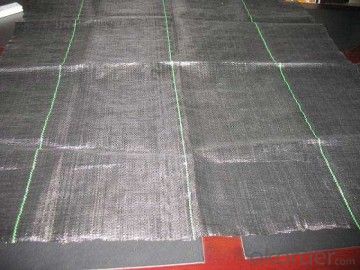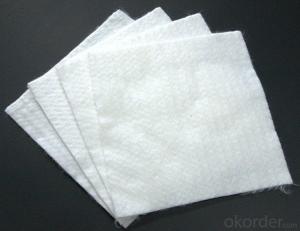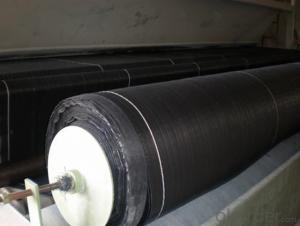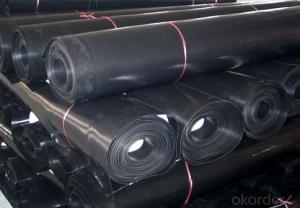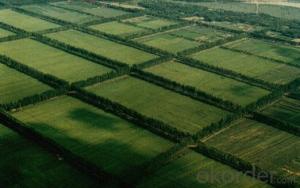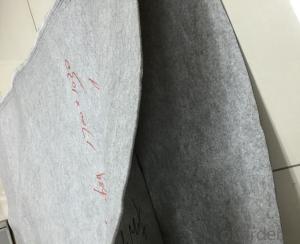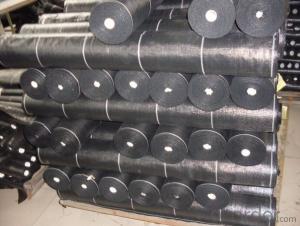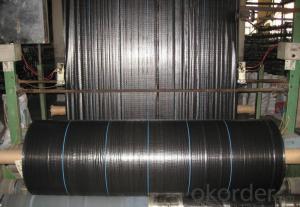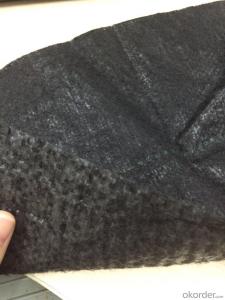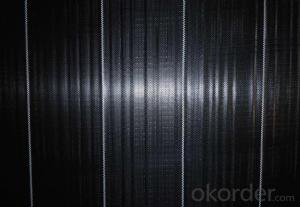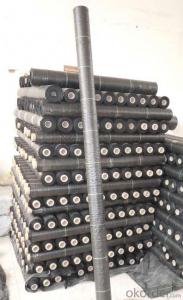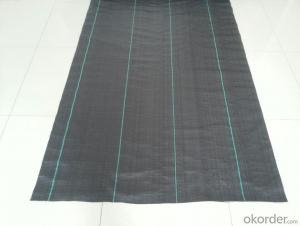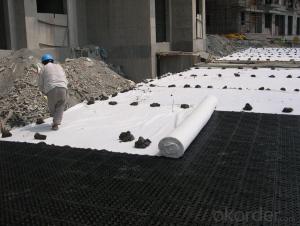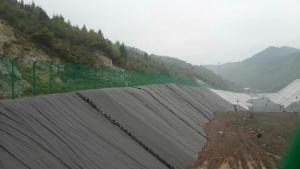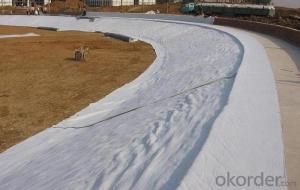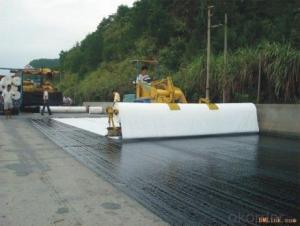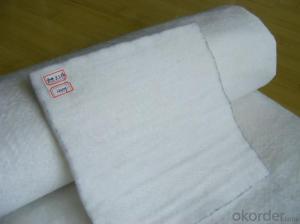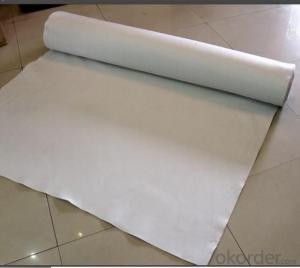Non-Woven Geotextile Landscape Fabric - Agriculture/Garden Tool/Garden Supply PP Weed Control Mat
- Loading Port:
- Qingdao
- Payment Terms:
- TT OR LC
- Min Order Qty:
- 500 m²
- Supply Capability:
- 500000 m²/month
OKorder Service Pledge
OKorder Financial Service
You Might Also Like
Product Description
The weed control mat is made of environmentally friendly raw materials, pp woven fabric. It used to prevent the growth of weed, without the use of potentially dangerous chemical sprays or labor intensive hoeing. Once installed, weed mat will continue providing protection for years without maintenance.
They are permeable fabrics, which allow air, water and nutrients to pass through, and designed to block out the sun to reduce photosynthesis and stop weed growth.
Specification
ROPERTY | ASTM TEST METHOD | Minimum Average | Minimum Average |
Mass per unit Area | ASTM D-5261 | 3.0 oz/yd2 | 100 g/m2 |
Grab Tensile | ASTM D-4632 | 145 lbs | 660 N |
Grab Elongation | ASTM D-4632 | 15% | 15% |
Trapezoid Tear | ASTM D-4533 | 55 lbs | 245 N |
Water Flow Rate | ASTM D-4491 | 5 gal/min/ft2 | 203 L/min/m2 |
UV Resistance | ASTM D-4355 | 70% @ 500 hrs | 70% @ 500 hrs |
ROLL DIMENSIONS | |||
Roll Width | 0.9m (3’) | 1.8m (6') | 2.7m (9') |
Roll Length | 91.4m (300’) | ||
Roll Weight | 8kgs (17lbs) | 16kgs (34lbs) | 24kgs (52bs) |
Features
1. Weed suppressant and drainage control landscaping fabric
2. Easy to use, Environmentally friendly
3. Allows water, air and nutrients through, suppressing weeds without the use of chemicals
4. Reduces the level of watering required due to the slower rate of water evaporation
Application
1. Excellent Weed Control
2. Moisture, fertilizers, air reach plants to allow for healthy soil
3. Good water and air permeability
4. Exceptional toughness and strength
5. Durable, tear-resistant; won't rot or mildew
6. Lightweight, easy to install, follows natural ground contours
7. Ideal for use in landscaped beds, under decks and walkways.
Packaging & Delivery
| Packaging Details: | Packed In Roll Or In Bales Or Cartons Or According To Customers Requirement |
| Delivery Detail: | 20 Days After Order Confirmed |
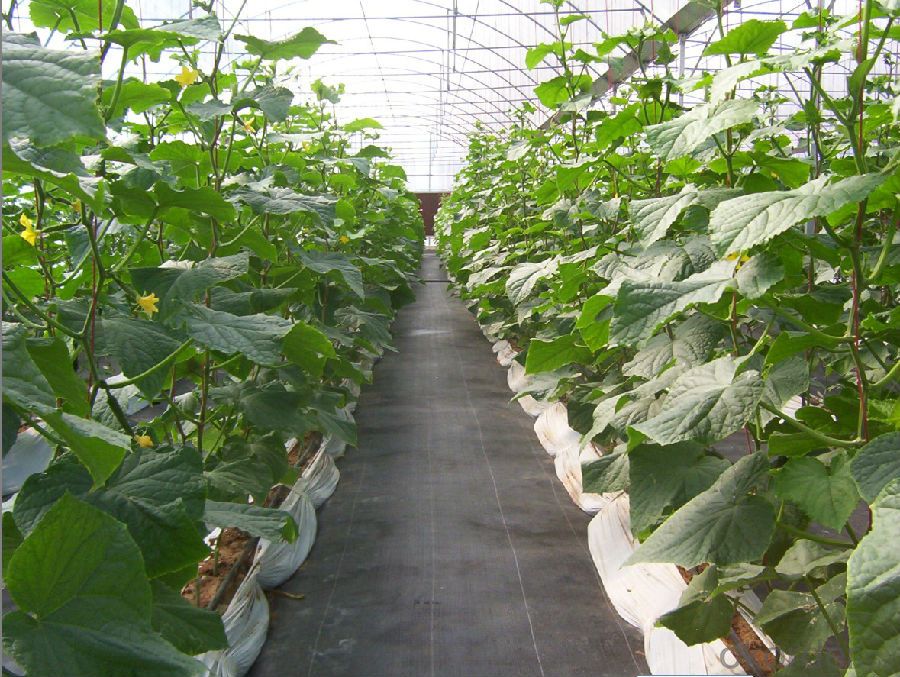
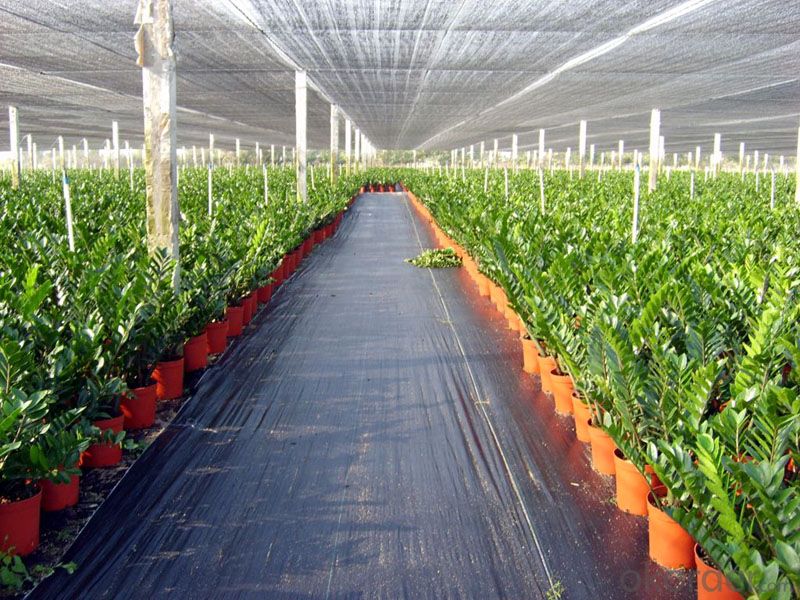
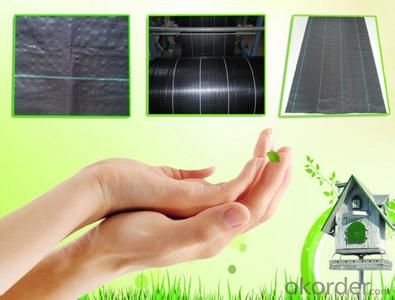
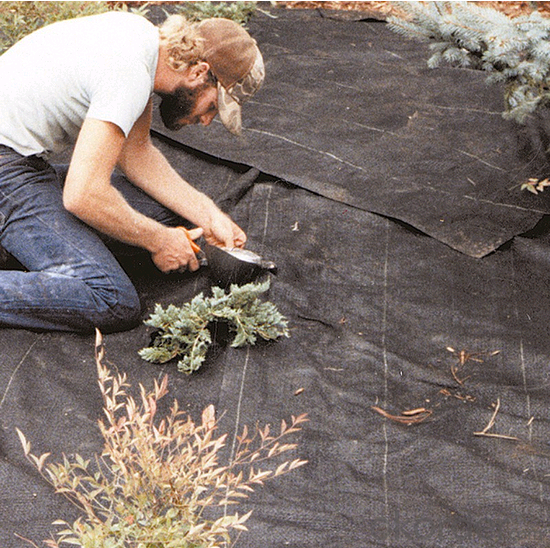
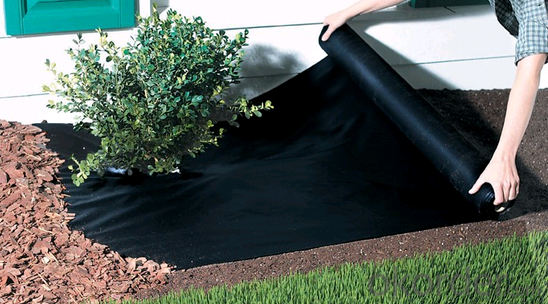
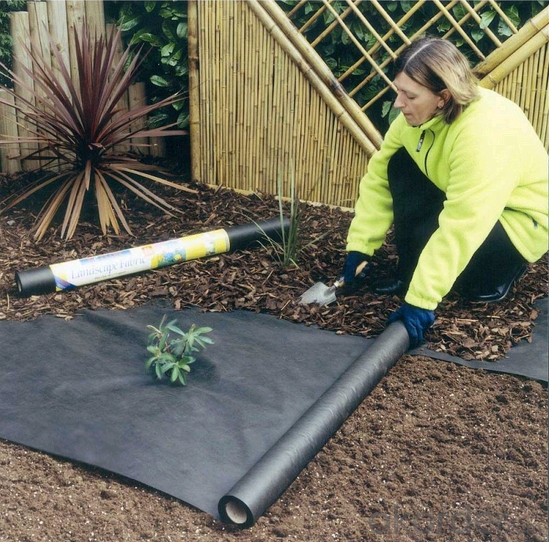
FAQ
1, Samples Policy
Samples are free, but the freight is on customers' charge
Samples will usually be sent out in one day.
2, Prices
As for the prices, we need you to provide us weight, color, width and usage so that
we can quote you best.
3, How to place an order?
Inquiry
Reply
Sample
Contract
Receiving deposit& production
Testing& Packing
Delivery
Receiving
- Q: Do you have a drainage board and a geotextile on the basement roof?
- Hello, generally do not require re-test Huazhi geotextile materials, manufacturers need to answer for your needs
- Q: Is the current tunnel construction, modular waterproof board (geotextile) is available?
- Geotextiles generally do not design applications in tunnel waterproofing. Because he can not meet the requirements of tunnel waterproofing
- Q: How do geotextiles help in preventing the growth of weeds?
- Geotextiles act as a physical barrier that prevents weed growth by blocking sunlight, which is essential for weed germination and growth. Additionally, they hinder weed seed transportation and provide a stable base for other materials like mulch, further reducing weed growth.
- Q: Can geotextiles be used for soil reinforcement in embankments?
- Yes, geotextiles can be used for soil reinforcement in embankments. Geotextiles are commonly used in civil engineering projects to improve the stability and strength of soil structures. They are effective in preventing soil erosion, enhancing drainage, and distributing loads, making them suitable for reinforcing embankments and preventing slope failures.
- Q: How do geotextiles help with filtration in stormwater management systems?
- Geotextiles help with filtration in stormwater management systems by acting as a barrier that allows water to pass through while trapping and retaining sediments and pollutants. They prevent the clogging of drainage pipes and channels, allowing for effective water flow and reducing the risk of flooding. Geotextiles also enhance the quality of water by removing harmful substances and promoting the natural filtration process, thereby improving overall stormwater management.
- Q: What are the uses of acupuncture geotextiles?
- Acupuncture geotextile is divided into filament spunbonded acupuncture non-woven geotextile and polyester staple acupuncture non-woven geotextile two. Filament spunbond acupuncture non-woven geotextile with high-quality polyester chips through high-temperature melting, spinning into a network, acupuncture into cloth production, filament spunbond acupuncture non-woven geotextile has a high tensile strength, Anti-tear strength, anti-breaking strength, in the project to play the role of reinforcement protection, generally used in roads, railways, dams, water conservancy construction, tunnels, landfills and other projects. Polyester staple acupuncture non-woven geotextile polyester staple fiber made by acupuncture, polyester staple acupuncture non-woven geotextile has a good water filter performance, the price is relatively low, in the project to play a reinforced protection, The role of filtration, generally used in civil engineering isolation, filtration, drainage sites.
- Q: How do geotextiles contribute to green building certifications?
- Geotextiles contribute to green building certifications by providing sustainable and environmentally friendly solutions. They can be used in various applications such as erosion control, stormwater management, and soil stabilization. By utilizing geotextiles, green building projects can achieve high performance in areas like water efficiency, site selection, and construction waste reduction. Additionally, geotextiles promote the use of recycled materials, reduce the need for harmful chemicals, and enhance energy efficiency, all of which are key factors in obtaining green building certifications.
- Q: What are the environmental benefits of using geotextiles?
- Geotextiles offer several environmental benefits, including erosion control, stormwater management, and soil stabilization. They prevent soil erosion by providing a physical barrier that holds soil particles in place, reducing sedimentation in water bodies and preserving the quality of aquatic ecosystems. Geotextiles also help manage stormwater runoff by promoting infiltration and reducing surface runoff, which helps to recharge groundwater and minimize the risk of flooding. Additionally, geotextiles aid in stabilizing soil, preventing slope failures, and minimizing the need for excessive excavation or grading, thereby reducing the environmental impact of construction activities.
- Q: How do geotextiles help with soil separation and stabilization?
- Geotextiles help with soil separation and stabilization by acting as a barrier between different soil layers, preventing mixing and maintaining their individual characteristics. They also enhance soil stability by increasing its shear strength, preventing erosion, and improving drainage.
- Q: What is the difference between finished and semi-finished products?
- Think of ways to develop customers in the country Well. Foreigners may now also like, in the future may also like to like something else. We have the domestic people's own preferences are unable to control, but also control the other countries ah?
Send your message to us
Non-Woven Geotextile Landscape Fabric - Agriculture/Garden Tool/Garden Supply PP Weed Control Mat
- Loading Port:
- Qingdao
- Payment Terms:
- TT OR LC
- Min Order Qty:
- 500 m²
- Supply Capability:
- 500000 m²/month
OKorder Service Pledge
OKorder Financial Service
Similar products
Hot products
Hot Searches
Related keywords
